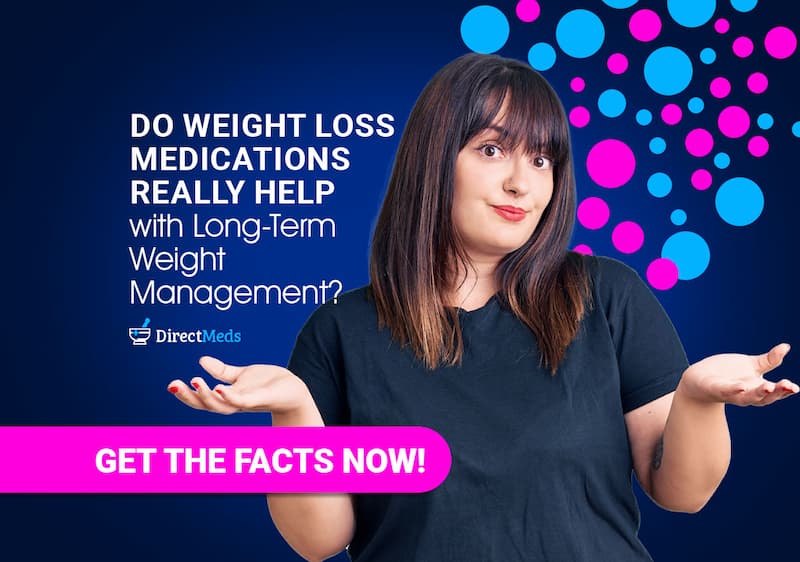Weight loss medications are increasingly popular for those seeking additional support on their weight loss journey, but the question remains: can they really help with long-term weight management? While these medications can aid initial weight loss, maintaining that progress over the long term often requires more than medication alone. Here’s a closer look at how weight loss medications work, their role in long-term management, and what factors influence success.
- How Weight Loss Medications Work
Most weight loss medications fall into a few categories based on how they impact the body:
* Appetite Suppressants: These medications work by reducing hunger, making it easier to eat less.
* Fat Absorption Inhibitors: These drugs prevent your body from absorbing all the fat you consume, which lowers your calorie intake.
* Metabolism Boosters: Some medications increase the metabolic rate, helping the body burn more calories throughout the day.
While these effects are helpful for jump-starting weight loss, the journey doesn’t stop there. Achieving and maintaining a healthy weight is a long-term commitment that goes beyond medication alone.
Can These Really Help Long-Term? Let’s Get Real!
Here’s what I’ve learned both from research and personal experience – these medications can absolutely help with long-term weight management, BUT (and this is a big but!) they work best when they’re part of a bigger plan. Think of them as your weight loss sidekick, not your whole strategy!
- The Role of Lifestyle Changes in Long-Term Success
Weight loss medications are most effective as part of a comprehensive plan. Here are some key lifestyle changes that work well alongside medication for lasting results:
* Diet: A balanced diet rich in whole foods can help sustain weight loss. Portion control, mindful eating, and incorporating a variety of nutrients are key to avoiding a rebound effect.
* Exercise: Regular physical activity not only supports weight loss but also boosts mood, energy, and metabolic health. Even after stopping medication, maintaining an active lifestyle is essential for managing weight.
* Behavioral Support: Therapy, support groups, or counseling can help address emotional triggers for overeating and establish healthy coping mechanisms.
These changes help transition weight loss from a short-term goal to a long-term commitment.
Who Benefits Most from Long-Term Use of Weight Loss Medications?
In some cases, doctors may recommend continuing weight loss medication long-term for patients with chronic obesity who have had difficulty maintaining weight without it. These cases are typically monitored closely by healthcare providers to assess effectiveness and manage potential side effects. For others, weight loss medications may be used only temporarily to support early-stage weight loss. Long-term use isn’t necessary for everyone, but in cases where it’s appropriate, it can help some individuals maintain their weight more successfully when combined with ongoing lifestyle adjustments.
What Really Makes It Work:
- Finding a way of eating that you can actually stick with (no crazy restrictions!)
- Getting moving in ways you actually enjoy (dance parties count! 💃)
- Working on the emotional side of eating (because let’s be honest, it’s not just about the food)
The Secret to Making It Last
Want to know what I’ve seen work best? It’s all about building habits that stick around even after you might stop taking the medication. Here’s what helps:
- Start Small: Make tiny changes you can actually keep up with (like adding an extra veggie to dinner)
- Be Patient: This isn’t a race! Slow and steady really does win here
- Build Your Squad: Whether it’s family, friends, or an awesome online community, having support makes SUCH a difference!
Who Should Consider Long-Term Use?
Let’s be honest – everyone’s journey is different! For some people, these medications might be more of a short-term tool to help establish new habits. For others (especially those dealing with chronic obesity), longer-term use might make more sense. This is definitely something to discuss with your healthcare provider – they can help figure out what makes the most sense for YOUR specific situation!
The Not-So-Fun Stuff We Need to Talk About
Okay, let’s keep it real – there are some things to consider before jumping in:
- Side effects can happen (usually manageable, but still worth knowing about!)
- These medications can be pretty expensive (check your insurance coverage!)
- You’ll need regular check-ins with your doctor
My Quick Top Tips for Success
After seeing what works (and what doesn’t), here’s what I recommend:
- Think of medication as your helper, not your hero
- Focus on building habits you can actually maintain
- Celebrate ALL victories (not just scale wins!)
- Keep in touch with your healthcare team
- Be patient with yourself (this is a journey, not a sprint!)
The Bottom Line
Can weight loss medications help with long-term weight management? Yes! But they’re most effective when they’re part of a bigger plan that includes sustainable lifestyle changes. Think of them as training wheels – they can help you get started and feel more confident, but eventually, it’s the habits you build that keep you rolling!
*OF COURSE – The information provided on this blog is for general informational purposes only and is not intended as medical advice. Always seek the guidance of a qualified healthcare provider with any questions you may have regarding a medical condition or treatment.
If you’re considering weight loss medications, speak with a healthcare provider about how they might fit into your journey and what steps you can take to make your weight loss efforts last. With the right plan in place, you can use medication as a powerful tool in a well-rounded strategy for a healthier future.








